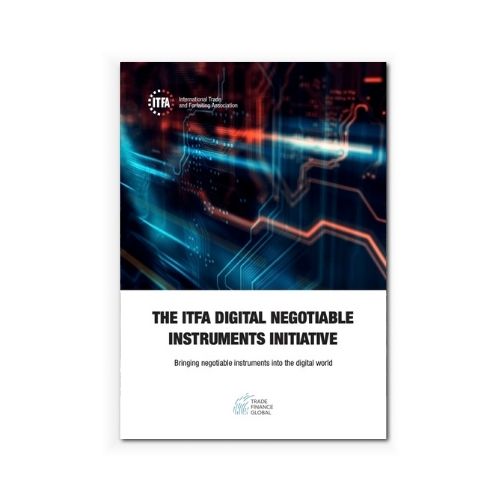Digital Trade Instruments
Promissory Notes and Bills of Exchange
Before diving into their use cases as digital instruments, one must first understand what exactly promissory notes (PNs) and bills of exchange (B/Es) are.
A B/E is defined as a written order to a person requiring the person to make a specified payment to the signatory or to a named payee. Similarly, a PN is defined as a signed document containing a written promise to pay a stated sum to a specified person or the bearer at a specified date or on-demand.
Both are independent payment undertakings (debt obligations) made from one person to another that are codified in English law under the BoE 1882, which has since been developed and interpreted by courts. The documents typically contain all the terms pertaining to the indebtedness, such as the principal amount, interest rate, maturity date, date and place of issuance, and issuer’s signature.
A B/E differs from a PN in the sense that it is transferable; this means that one party can be obligated to pay another party who was not involved in the creation of the instrument. A B/E is usually issued by one party and endorsed by another. As it has been endorsed or there is an agreement to pay, there is little risk of non-payment.
An important characteristic of B/Es and PNs is that they are totally independent. If they are contingent on other instruments, such as purchase agreements or other underlying transactions, they are generally not accepted. In essence, this makes them irrevocable and unconditional promises to pay, with no defence to non-payment, to a holder who is free to transfer it to another party as they see fit.
Digital trade instruments
The ITFA Digital Negotiable Instrument (DNI) initiative has created a functionally equivalent instrument that operates in the same way as the B/E and PN, delivering the benefits of an eNI under English law. This solution, hereafter referred to as an ePU, is an important step towards achieving full applicability under English Law, specifically the BoE 1882. The ePU delivers a digitally native irrevocable, unconditional, and independent payment undertaking that fulfils all requirements of a traditional NI, albeit subject to contract law rather than common law.
Download our free publication
Contents
1 | Digital Negotiable Instruments – Home
2 | Introduction to Digital Negotiable Instruments
3 | Digital Documents
4 | Digital Trade Instruments
5 | Electronic Payment Undertaking (ePU)
6 | Legal Issues of Digital Negotiable Instruments
7 | ePU Template Wording
Legal Trade Finance Hub
1 | Introduction to Legal Trade Finance
2 | Standard Legal Charges
3 | Borrowing Base Facilities
4 | Governing law in trade finance transactions
5 | SPV Financing
6 | Guarantees and Indemnities
7 | Taking security over assets
8 | Receivables finance and the assignment of receivables
9 | Force Majeure
10 | Arbitration
11 | Master Participation Agreements
12 | Digital Negotiable Instruments
Latest News
MAS’s new digital tool COSMIC aims to curtail financial crimes
0 Comments
Deutsche Bank closes US$3.5bn issuance of TRAFIN 2023-1, fifth iteration of synthetic securitisation
0 Comments
Video | ITFA Christmas Party: Unwrapping the EU Late Payments Regulation
0 Comments
Video | Educating regulators: The IFC factoring guide
0 Comments
Kuvera Resources v J.P. Morgan Chase: Certainty of payment vs risks of breaching sanctions under Letters of Credit
0 Comments
TFG to host comprehensive Tradecast on UK’s Electronic Trade Documents Act (ETDA)
0 Comments
Almond ailments: New York courts find jurisdiction a hard shell to crack
0 Comments
Thumbs up for trade: the influence of an emoji
0 Comments
Credit insurance, export credit and funds: The 5 pillars to help the African trade gap (Part 2)
0 Comments
Going up in smoke: Trade sanctions from Cuban cigars to Russian oil
0 Comments
 Australia
Australia Hong Kong
Hong Kong Japan
Japan Singapore
Singapore United Arab Emirates
United Arab Emirates United States
United States France
France Germany
Germany Ireland
Ireland Netherlands
Netherlands United Kingdom
United Kingdom






